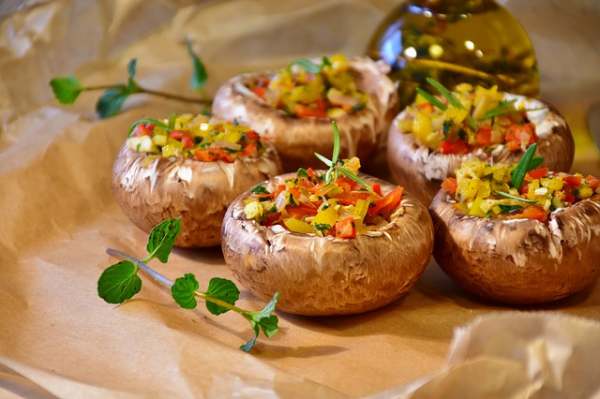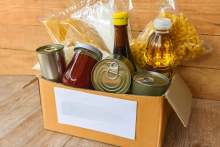Try to avoid buying everything from a supermarket
Supermarkets sales surge every Christmas, with convenience often appealing. But as we discuss in our supermarkets guide, the mega chains are responsible for everything from enormous food waste and unfair prices paid to farmers, to workers’ rights abuses in their supply chains.
And supermarkets are a low-scoring sector in our ratings tables: the big high street brands score between 20 and 54 out of a possible 100.
There are lots of places where you can shop without funding supermarkets’ unethical practices. The UK has a huge number of wholefood stores, ethical supermarkets and zero-waste shops popping up. In our guide to ethical food supermarkets, we rate and rank 15 alternatives, which score higher than the high street brands. Best of all, you could find your local zero waste or wholefood shop, which will likely offer organic and/or lower packaging options.
Local greengrocers often allow you to pre-order a veg box and even deliver - or you could set up an order with best buy Riverford. Read more in our separate article on veg box schemes, and see how some of them rate in our guide to ethical food supermarkets.
If you’re daunted by the idea of changing your shopping habits at Christmas - undoubtedly a busy time of the year - you could make it part of the tradition.
Ask whether a friend or family member wants to come to an ethical shop with you, plan a mince pie baking session together or look for presents at the same time.
Or start by buying just a handful of your items outside of the supermarket to get the ball rolling for future years.
Shopping ethically in supermarkets
Many people do use supermarkets, so our guide to supermarkets rates the big multinationals, the cheaper European brands like Aldi and Lidl, and smaller supermarkets like Co-op.
If you live near several different supermarkets, you may be able to make a switch to shop at a slightly more ethical supermarket. Or, read our article on shopping ethically within the supermarket too, for more tips about making the most of the store you use.
Go palm oil free
Unfortunately, many things we like to eat at Christmas are often stuffed with palm oil. Mince pies, chocolates, biscuits and Christmas pudding all often contain it.
Palm oil is associated with deforestation and serious Indigenous rights abuses, so we suggest avoiding it or opting for a company that shows best practice (look for our Best palm oil rating).
In our Palm oil free Christmas food guide, we list the companies that score the highest in our palm oil rating, as well as those going palm oil free. There are several options for palm-oil free mince pies and palm-oil free Christmas puddings for example.
Avoiding processed food is often one way to dodge palm oil: making your own mince pies or Christmas puds is possible, either by making everything yourself (pastry and mincemeat), or buying these items and making them in your kitchen.
Authentic Bread Co, Infinity Foods and Meridian all sell jars of organic, vegan, suet-free mincemeat. Just make sure the marg or spread you’re buying doesn’t also contain palm oil if you're making your own pastry!
How to find an ethical mince pie
Aside from palm oil, there is quite a lot for an ethical consumer to consider when choosing which mince pies to buy.
In our guide to mince pies, we also consider:
- Is it vegan? Dairy cows (used to make butter) often have poor welfare standards, and farming cows significantly negatively impact the climate.
- Is it organic? Organic farming avoids harmful chemicals, and GMOs and is generally far better for our ecosystems. Organic means somewhat higher animal welfare standards if you do not opt for a vegan mince pie.
- Are there poor workers’ rights in the supply chain? Mince pies contain many ingredients, such as sugar, which are a high risk for workers’ rights abuses in the supply chain.
Best buys for mince pies
Our best buys are Riverford, Roots & Wings, and Authentic Bread Company. They top our score table and are all organic companies that scored 100 for company ethos.








